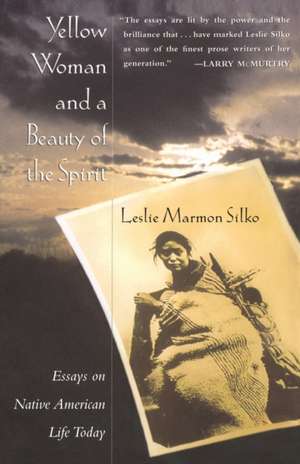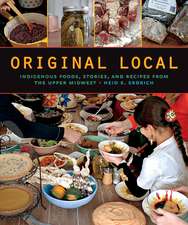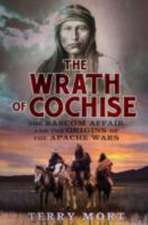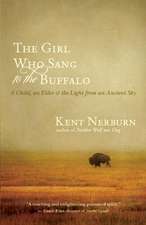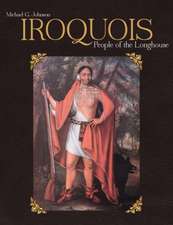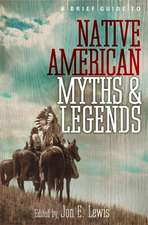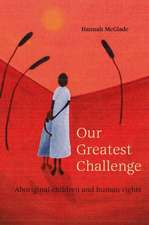Yellow Woman and a Beauty of the Spirit
Autor Leslie Marmon Silkoen Limba Engleză Paperback – 28 feb 1997
Preț: 87.17 lei
Nou
Puncte Express: 131
Preț estimativ în valută:
16.68€ • 17.35$ • 13.77£
16.68€ • 17.35$ • 13.77£
Carte disponibilă
Livrare economică 24 martie-07 aprilie
Preluare comenzi: 021 569.72.76
Specificații
ISBN-13: 9780684827070
ISBN-10: 0684827077
Pagini: 208
Dimensiuni: 137 x 213 x 18 mm
Greutate: 0.25 kg
Ediția:Touchstone.
Editura: Simon&Schuster
ISBN-10: 0684827077
Pagini: 208
Dimensiuni: 137 x 213 x 18 mm
Greutate: 0.25 kg
Ediția:Touchstone.
Editura: Simon&Schuster
Notă biografică
Leslie Marmon Silko:One of the reasons I felt I must write the essays in this book was to remedy this country's shocking ignorance of its own history.
U.S. history courses in elementary and secondary schools usually begin with the arrival of the Englishspeaking Pilgrims at Plymouth Rock or, if the teacher is quite daring, with the failed colony at Roanoke, Virginia- Yet the true history of the United States begins thousands of years earlier with the stories of the paleo-Indian mammoth hunters on the plains of what is now northeastern and north-central New Mexico. These ancestors of the Pueblo Indian people did more than survive, they learned to thrive under the harsh conditions of the southwest desert.
In 1540, when the Spaniards marched into what is now Arizona and New Mexico, they found large, prosperous villages which reminded them of towns in Spain; and so they called the people "indios pueblos"-"pueblo" is the Spanish word for "town." The "indios pueblos" did not take the invasion of their land lying down- they resisted bitterly, and in 1680, they expelled the Spaniards to El Paso for twelve years.
In 1689, to make peace with the Pueblos, the King of Spain recognized each of the Pueblos as sovereign nations under international law Thus, the Pueblos of New Mexico (and Hopi of Arizona) were acknowledged as nations by international law, almost one hundred years before the United States even existed.
If our U.S. educational system actually gave students a complete history of this country, a great deal of prejudice aimed at Native Americans, African-Americans, Asian-Americans, and Spanish-speaking U.S. citizens might be ended as our school children began to understand who really settled this country, and who really did the work of planting crops, mining ore, and building cities and railroads.
Until the whole story of the origins of the United States of America is known, there can be no justice, and without justice, there can be no peace.
Reading Group Discussion Points
Other Books With Reading Group Guides
U.S. history courses in elementary and secondary schools usually begin with the arrival of the Englishspeaking Pilgrims at Plymouth Rock or, if the teacher is quite daring, with the failed colony at Roanoke, Virginia- Yet the true history of the United States begins thousands of years earlier with the stories of the paleo-Indian mammoth hunters on the plains of what is now northeastern and north-central New Mexico. These ancestors of the Pueblo Indian people did more than survive, they learned to thrive under the harsh conditions of the southwest desert.
In 1540, when the Spaniards marched into what is now Arizona and New Mexico, they found large, prosperous villages which reminded them of towns in Spain; and so they called the people "indios pueblos"-"pueblo" is the Spanish word for "town." The "indios pueblos" did not take the invasion of their land lying down- they resisted bitterly, and in 1680, they expelled the Spaniards to El Paso for twelve years.
In 1689, to make peace with the Pueblos, the King of Spain recognized each of the Pueblos as sovereign nations under international law Thus, the Pueblos of New Mexico (and Hopi of Arizona) were acknowledged as nations by international law, almost one hundred years before the United States even existed.
If our U.S. educational system actually gave students a complete history of this country, a great deal of prejudice aimed at Native Americans, African-Americans, Asian-Americans, and Spanish-speaking U.S. citizens might be ended as our school children began to understand who really settled this country, and who really did the work of planting crops, mining ore, and building cities and railroads.
Until the whole story of the origins of the United States of America is known, there can be no justice, and without justice, there can be no peace.
Reading Group Discussion Points
Other Books With Reading Group Guides
Descriere
A passionate weaving of past and present, this collection of 22 essays illuminates the Native American experience. "There is no one writing in America who more deserves our attention and respect".--Larry McMurtry.
